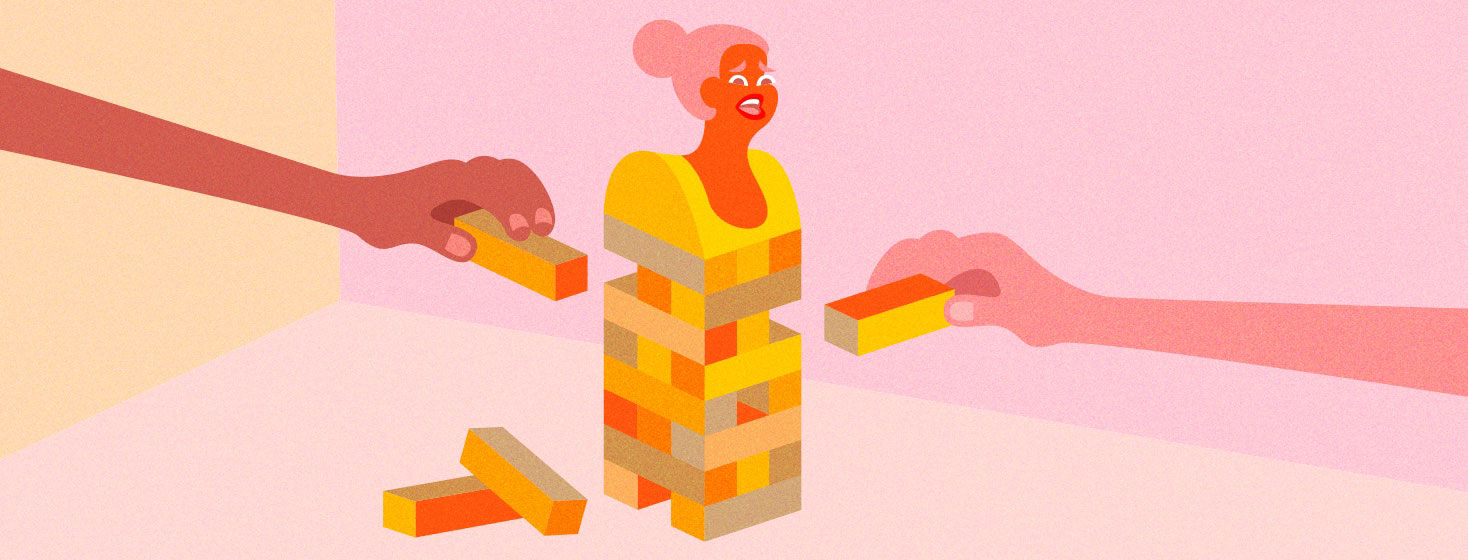Esteem Beliefs
Self-esteem is an important component of our individual selves and has a correlation with our mental health. An individual’s self-esteem makes up for how we feel about ourselves, our bodies, our worth, and our relationships.1
We all have esteem beliefs related to ourselves and related to other people.
Developing self-esteem
We all have an underlying basic human need to be understood, respected, and taken seriously by other people, especially those around us. A positive sense of self-esteem provides individuals with a feeling of self-confidence. This self-confidence allows them to feel comfortable in making decisions and in their own opinions.
There are certain experiences that can lead individuals to develop a negative self-esteem. Some examples of such experiences include:
- Believing other people’s negative statements about you
- Receiving little care or support from others
- Being criticized, joked about, or blamed by others
Somebody with strong positive self-esteem can maintain their esteem despite the negative experiences previously mentioned. When the self-esteem is low, the individual is going to believe those thoughts.
Esteem belief related to others
A separate component of our esteem is related to how we value other people. When we have healthy esteem beliefs towards others, we have realistic views of other people. On the other hand, when we have unhealthy esteem beliefs towards others, we believe stereotyped beliefs of others. We may develop trust issues. The stereotyped beliefs we believe are relatively unchanged by new information we may receive.
Some symptoms of negative esteem beliefs about others include:
- Chronic anger
- Cynicism
- Disbelief when treated with genuine caring compassion
- Antisocial behavior
I believe the phrase you cannot love somebody else unless you love yourself, builds off our esteem beliefs related to ourselves and others.
Self-esteem beliefs and mental health
While having low self-esteem is not a mental health disorder, it can lead to mental health disorders. Such disorders could include anxiety and depression, shame, addiction, and personality disorders. Additionally, low self-esteem beliefs can cause individuals to accept poor relationships with other people.
The combination of low self-esteem and negative relationships can create a vicious cycle. An individual with low self-esteem may end up in an abusive relationship because they do not think they deserve a better partner. On the other hand, an individual in an abusive relationship may end up with low self-esteem because their partner is constantly telling them negative things about them.
My personal esteem beliefs and HIV
Currently, I am aware that I have low personal self-esteem beliefs about myself and some low esteem beliefs about other people. I have personality traits that indicate low self-esteem.
These traits include:
- I apologize too much for things that are not my fault or that I had no control over
- My mood changes easily
- I become depressed easily
- I avoid conflict and arguments at all costs
Despite everything, I am aware that I have low esteem beliefs and I work on myself and my thoughts. It is not always easy, but it is necessary to improve my life. I consciously take action to build my esteem beliefs.
These actions include:
- Practicing the giving and receiving of compliments (receiving compliments is still hard for me)
- Complimenting others for something unrelated to their looks
- Doing a little something nice for myself every day
- Acknowledge the things I am good at
- Building positive relationships
- Learning to be assertive (I have started this by focusing on learning to say NO when needed)
Our self-esteem can affect so many aspects of our lives and mental health. Self-esteem and esteem towards others are important to balance.
How is your self-esteem and esteem towards others?

Join the conversation